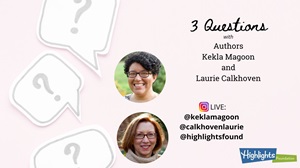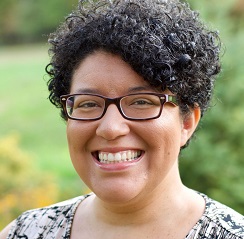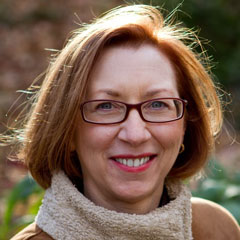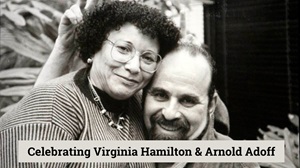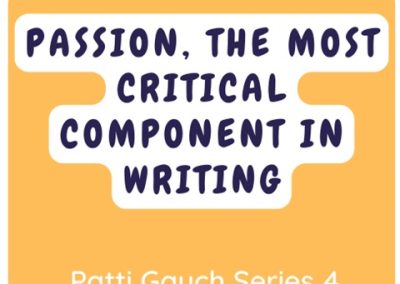Faculty members Kekla Magoon and Laurie Calkhoven joined Cat Galeano on Instagram Live to talk about their upcoming mini Discovering a Deeper Level of Your Character, a Two-Night Mini and the writing retreat they’re hosting in June: Spark Inspiration with Meditation and Creative Play.
Watch the conversation below. (Please note: closed captions are being added to the video below. When they are finished, you can see them by hovering over the bottom of the video and choosing the “CC” icon.)
Full Transcript:
Cat:
Hello everyone! I’m going to give a big hello to our Highlights Foundation family. We’re so happy to have you here with us today. For those that may not know me, I’m Cat Galiano. My pronouns are she, her, and I am the social media manager for the Highlights Foundation, joining you from Westchester, New York on the traditional lands of the Siwanoy people. But I am also a writer and a reader who is very excited to have this lunchtime chat with our friends and faculty, Kekla Magoon and Laurie Calkhoven, who will be teaching the upcoming mini Discovering a Deeper Level of Your Character, a Two-Night Mini and hosting the writing retreat Spark Inspiration with Meditation and Creative Play this June.
Now let’s get started. I love that you both–just make sure my head’s not cut off; there we go–I love that you both have a mini online course and an in-person working retreat at the Highlights Foundation that really complement each other. And I was really thinking about an easy way to describe how they complement each other. And I kept coming back to the word “spark” because whether it’s getting to know your character better by finding their spark, and what drives them, or find a spark in your own creativity that helps move it forward. It’s all about finding strategies and ways to really uncover what you need and put it in your story. So my first question to you both is when you’re, when you are working with each other and with our programming team to put together these courses, I’m sure that that these things were on your mind. And I know they’re so important for your own creative processes. What, why do you think these these approaches are so important?
Laurie:
Well, I think that when we get stuck in our writing, it’s really good to shake things up and do something different and, you know Kekla and I were in a writers group together for many years. We both have a lot of tools in our toolbox that we use for ourselves, but don’t necessarily share with other writers, and so this is an opportunity to do that. And really, you know, I think it helps to play when we’re writing. We lose enthusiasm sometimes and just playing these kinds of games that we’re gonna be introducing can really get us out of our own way and open up new paths for our characters and our stories.
Kekla:
And you know, I love the word “spark” because I feel like, you know, we’re always looking for sparks, right? We’re always looking for inspiration. We’re always looking for other ways to enter our work or other ways to further our work. And I feel like, you know, one of the things about writing is that we’re such solitary creatures, right? We sit at our laptop or we sit with our notebook and we don’t often have the opportunity to connect with other people. But what I learned from the writing group that I was in with Laurie for so many years is that you know, just even talking about your project with someone or learning what they do and hearing about their process can actually bring so many different sparks. And so the opportunity to talk about character and talk about story and community just causes everybody’s work to grow and causes all of us to get new ideas.
Cat:
Wonderful. All of his is fun, but it’s also hard work. We know it can make; we know it can pay off, especially in character development, because it brings a depth that that can’t really be achieved without knowing the characters on and off the page. Can we talk about a time when you were doing that deep work and discovered something really surprising you hadn’t known about one of your own characters?
Kekla:
Definitely. Well, I can say that attending Laurie’s character meditations she’s done for Highlights at times, and is going to be doing as part of our workshop, has opened up some really interesting stuff for me. It’s a really cool way to get to know your character and to kind of be surprised by what your character brings that you didn’t maybe know that was going on and get to new depths. And so that’s something that, you know, it’s just a new, thoughtful way to approach character that like I hadn’t tried before because I tend to be very, you know, haphazard and chaotic in my process. And Laurie is, is much more structured and organized. And so like we balance each other out in that way. And so when I tried this technique that she has introduced to so many people, I was really surprised and delighted by it.
Laurie:
Well, when I first started writing. Actually, before I met Kekla, even, I always I got very nice rejection letters praising my plots but telling me that my characters were wooden, and I’ve been meditating since high school. I took my first meditation class in high school in the basement of the town hall. And I realized at some point that I really needed to be meditating to get to know my characters better. And it was, actually, you know it was, and I developed these different prompts that that helped me in surprising ways get to know my characters and I was working on a book called Michael at the Invasion of France and I hadn’t yet figured out what my character’s inner journey was. I knew I knew what was going to happen. I knew he waas going to get involved in the resistance. He was going to help fight the war. I did a meditation with him and I discovered that throughout this entire novel, he was trying to prove to his father that he was worthy and so that became the center journey. And then the novel was so much richer and more impactful, I think because of that and that grew out of this meditation, which was really wonderful.
Cat:
I’d also like to share that I had the pleasure of participating in Laurie’s meditation class as a monitor a couple of years back, so definitely, definitely highly recommended. I loved it. I still think about it all the time, so I’m very excited for students that will be able to be on campus with all of you to be able to experience that first-hand. And so I’m going to jump into our third question is: when you’re stuck or trying to get that depth of understanding and having trouble, do you have a go-to way to move through that block or go-to way to spark your own creativity? I guess aside from meditation.
Kekla:
Well, I mean for me, like I, like I said, I’m kind of a chaotic writer and I tend to do a lot of things out of order. And so for me, that’s one way that I shake things up. You know, even if I have an outline or I have a sense of the direction of the piece, I don’t always know what comes immediately next, right? And so if I get stuck at a point in the story and I don’t know where I’m going, I don’t know what’s going to happen, I sometimes just jump to a different place in the story entirely. I say OK, well, what else happened? I don’t know what happens next, but what else happens? And so I sometimes find that I, I end up with all these story fragments and have to put them together in creative ways at the end of the process or toward the end of the process. Because that’s just the way that I have to enter the piece is just by saying, OK, here’s a character. Here’s something that happens to them. Here’s another thing that happens to them. Here’s yet another thing that happens to them. What connects those three moments? And what is missing and where can I add new, new scenes and whatnot. So yeah, like just leaning into the fact that I don’t always know what’s next. And you know, it’s OK to just try something completely out-of-the-box.
Laurie:
Yeah, I, I sometimes use a technique I learned from Gail Carson Levine, who said once when she came to a problem in a novel, she wrote it down on a post-it and stuck it on her office wall. And then, and then, took a walk with the dogs. And usually then the answer came to her. So often if I’m stuck on something, I’ll write it down on a post-it. I don’t have dogs to walk but I’ll, I’ll take a walk in the city and and see what pops up, but I also find writing against a timer really helps, even though I’m the one that sets a timer, uh, for some reason I feel this need to beat it. So if I’m having trouble coming up with plot points for my novel, for instance, I’ll set a timer for 15 minutes and force myself to write down as many scene ideas as I can and 50% of them might be really bad. But 50% of them might be usable, so writing against that timer really helps for me. And I have other games that I play that that we’ll be sharing, both online and in the in-person workshop, just games to just wake me up and get me out of my usual way of thinking and try something new.
Cat:
I love that, like in the mini that you’ll be hosting it’s, you know, a little bit of a deeper dive into character. But I feel like the retreat you’ll be hosting in June, we’ll have like, a much more amplified and we’ll, you know, we’ll tackle a little bit more about a novel than than just the character. Is there anything else you’d like to add, to, to tell our our Highlights family and friends about the mini or the retreat?
Laurie:
I mean, I think that’s a pretty good summary. I mean, we’re going to be playing a lot of creative games. We’re going to be brainstorming. We’re going to be giving prompts and suggestions and ideas for how to explore with your character. In the mini, we’ll be–you know, it’s two nights–well, you’ll have meditations from Laurie and some character exercises from me. We’ll have some conversation and then in the in-person retreat in June, we’ll have “spark” time in the morning where we’ll offer, you know, prompts and whatnot and then people will have time to actually go about their business during the day and do some creative work and come back and share in the evenings. So both spaces should be really fruitful for people to to deepen their character or expand their story, ask questions–you know, just expand their craft and hopefully get some of those sparks you’re talking about.
Kekla:
Yeah, I think we’ll be balancing kind of workshop games and stuff with writing time, so people have lots of time to put into practice what we’re throwing at them in the mornings.
Cat:
Wonderful! And so, if you’d like to learn more from Kekla and Laurie, make sure to sign up for their class Discovering a Deeper Level of Your Character, a Two-Night Mini; taking place February 20th and 22nd or better yet, retreat with them on campus this June. You can also purchase Kekla and Laurie’s books at our virtual bookshop, powered by bookshop.org. Thank you, Laurie. Thank you, Kekla for joining us today– we can’t wait to see you online and in person–hopefully both! For those of you who can’t make one or the other, you should just come to both.
Kekla:
Why not?
Cat:
Why not? Thank you so much for joining us.



